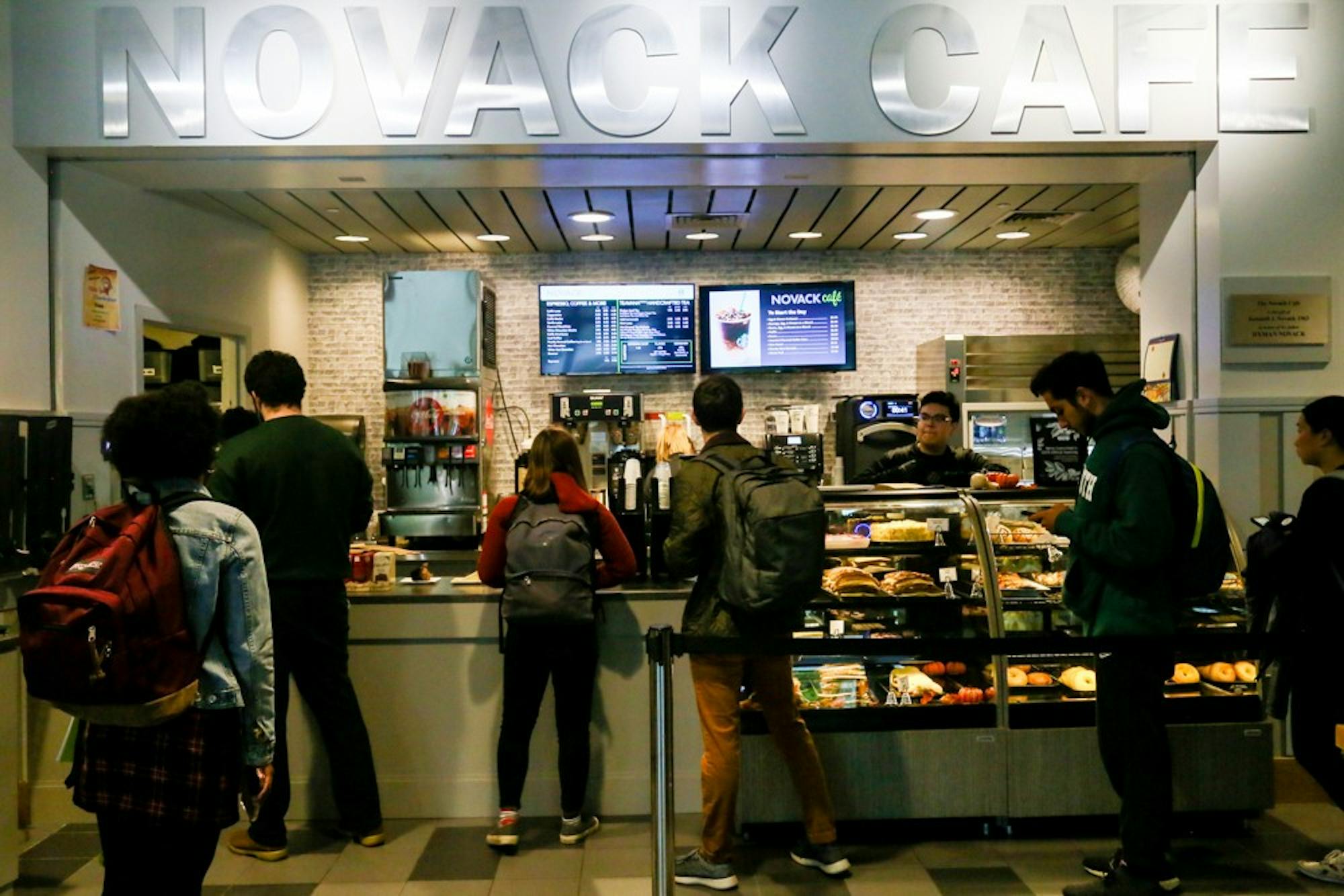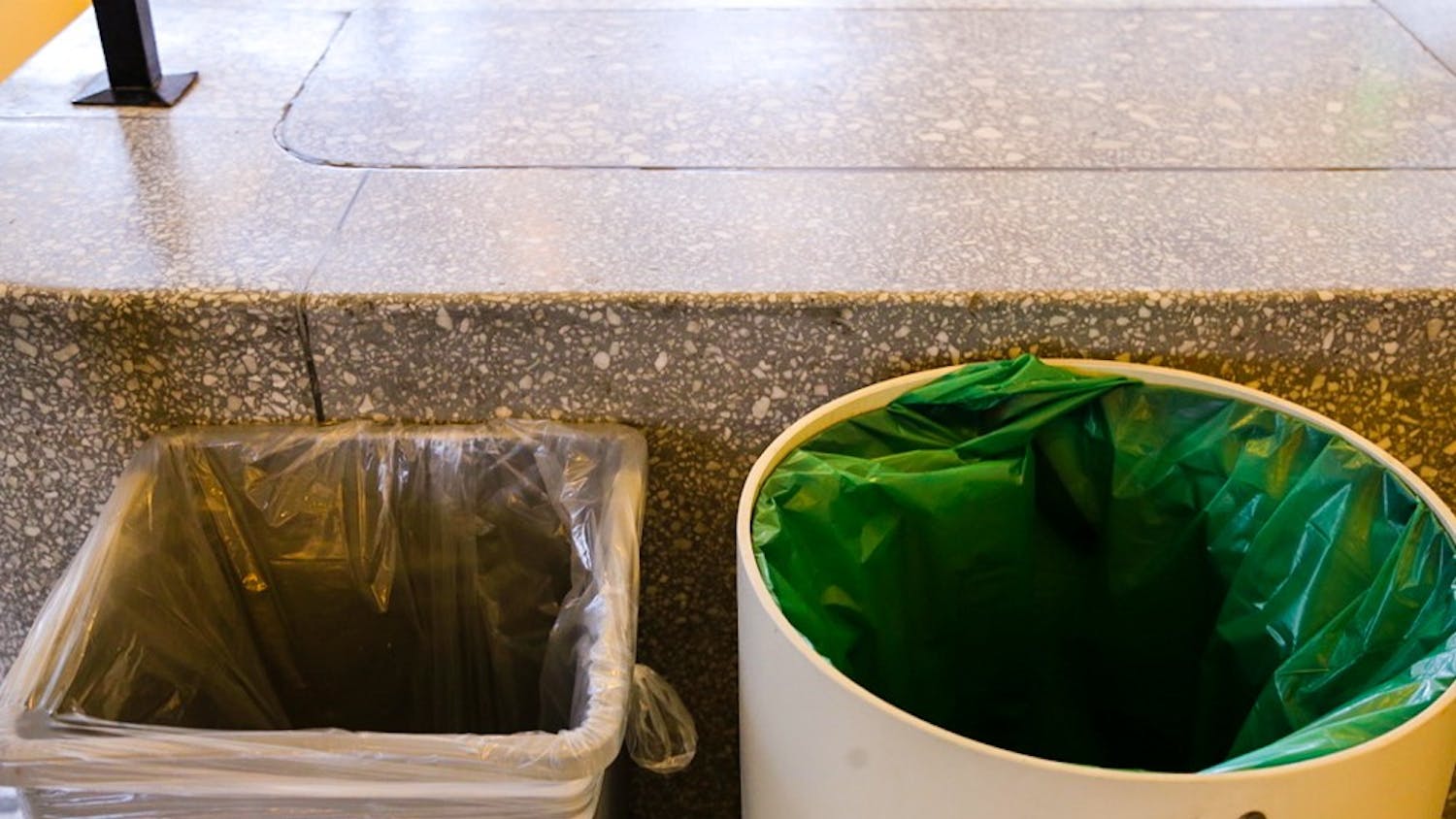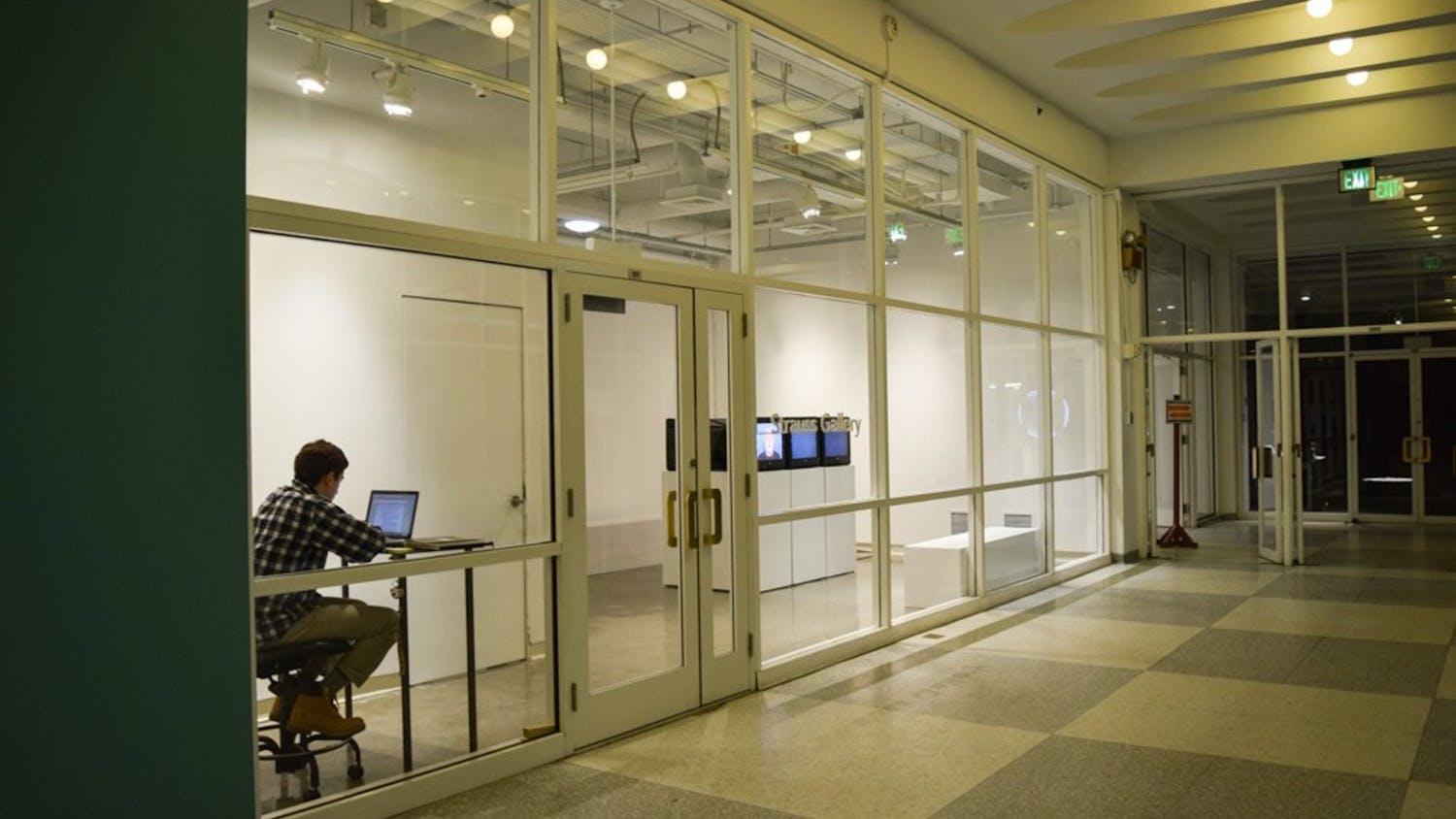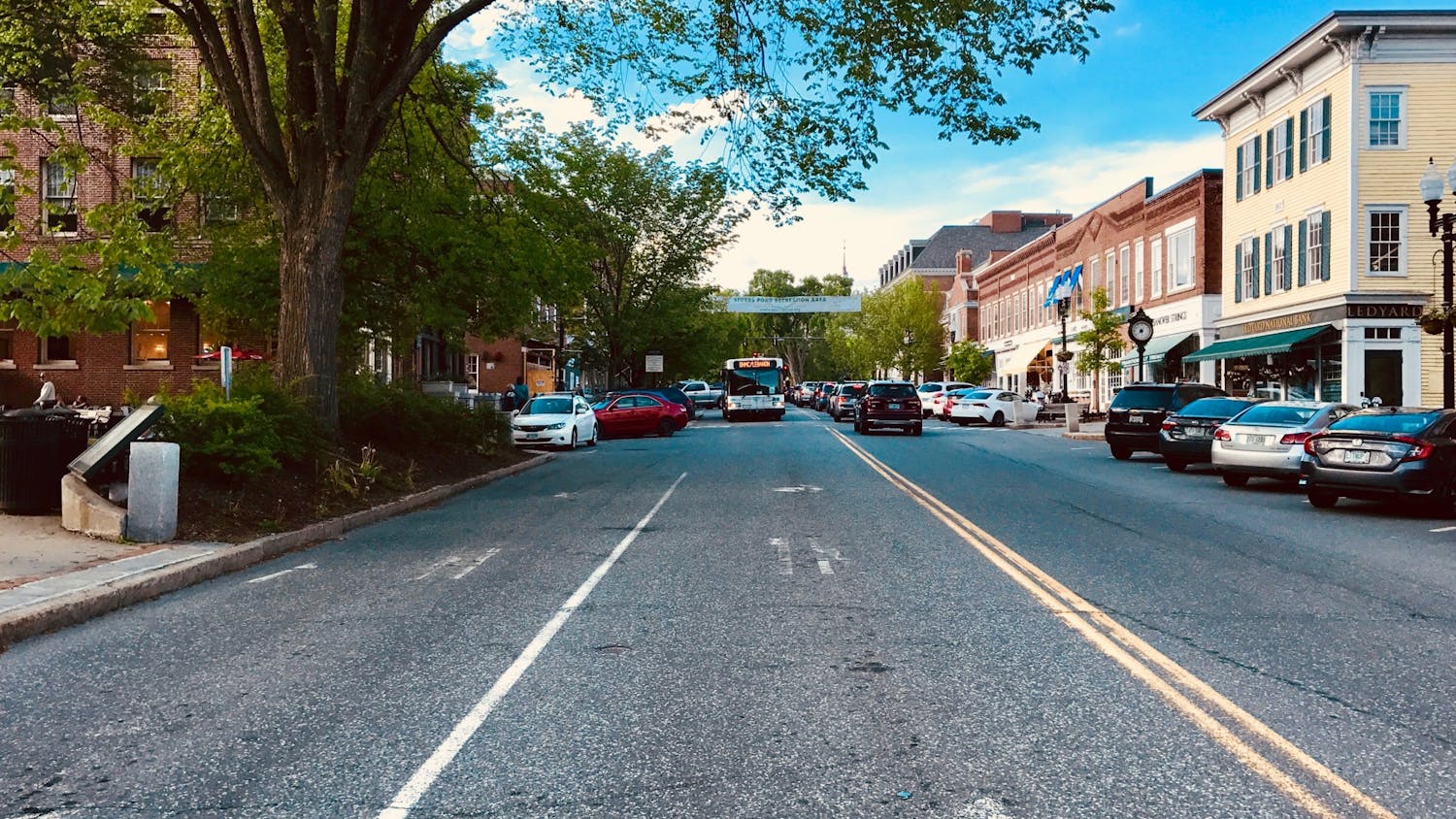As consumers shift to digital forms of payment like credit cards and mobile banking, cash has dwindled from our day-to-day transactions. Like other trends, the COVID-19 pandemic seems to be accelerating the transition from a cash-based to a cashless society.
This trend has made its way to Dartmouth, where all dining locations are now both cashless and touchless to prevent the spread of COVID-19, according to Dartmouth Dining director Jon Plodzik.
Chris Robbins, manager at Novack Cafe, said that the cafe accepted cash before COVID-19 but now accepts only credit card, debit card, meal swipes and DBA. Aside from a couple people who were surprised by the change, the transition has gone smoothly.
“We’re just trying to keep people as safe as we can,” Robbins said. “Of course, you can still use your credit card or your debit card, so for most people it’s really not an issue.”
Robbins said that Novack hasn’t seen big changes to its operations since cash transactions were phased out. However, he thinks that even aside from public health concerns, going cashless has the advantage of simplifying daily business.
“The whole industry considers cash to be dirty,” Robbins said. “Cashiers have to do extra procedures, whether they’re washing their hands, changing gloves, wearing gloves. It’s always been an issue — it just wasn’t as in front of everybody as it is now.”
On the other hand, local coffee shop Dirt Cowboy Cafe still allows cash transactions. According to owner Tom Guerra, the cafe has not seen a notable difference in the use of cash since the pandemic. He added that cash transactions have been declining every year since Dirt Cowboy opened in 1993.
“When I first started the business, it was probably about 75% cash, and every year it’s been ticking down,” Guerra said. “Right now, it’s at 25%, and I imagine at some point pretty soon, it’s going to go down to 15%, maybe less.”
Despite these declining percentages, Guerra said that Dirt Cowboy is not planning on going cashless. In addition to generating more tips, cash transactions also provide more money directly to the business.
“Cash is still more lucrative,” Guerra said. “There’s more profit in cash than there is in credit card. Especially for a place like ours, with small transactions, the credit card companies take a pretty big chunk out of the sales.”
Allan Reetz, director of public and government affairs at Hanover Co-op Food Stores, explained that every type of transaction involves added fees, whether that is a processing fee for a credit card or check, or the payment for an armored car service to pick up cash.
“Every form of transaction — cash, check or plastic — is a cost to our business,” Reetz said. “Nothing is free for us.”
Before COVID-19, the entire Co-op business — which includes three grocery stores, two auto service centers and a community market and kitchen — processed over 5,000 customer transactions a day. Given the high volume of shoppers, the Co-op aims to make transactions convenient for a broad range of customers.
“If a customer comes and would like to use cash, we’re ready to accept those dollars,” Reetz said. “If they would like to use plastic, we have a very simple minimum purchase amount.”
Regarding whether the Co-op would consider going cashless at some point, Reetz said that he has “not heard that come up in any conversation.”
Even though completely cashless operations may seem distant for businesses like the Co-op, they are already a reality for some consumers. Olivia Nadworny ’22 said that she never uses cash and would sometimes “forget that it’s a thing.” She said these habits were formed during her time living with her family in Sweden, a largely cashless society.
“Most businesses [in Sweden] — unless it’s an international business — don’t take cash,” Nadworny said. “Cafes and restaurants have signs that say, ‘No cash.’”
Nadworny recalls that when she worked at a bakery, people couldn’t pay at all during a power outage because the card machine wasn’t working. She also remembers how everyone would use an app called Swish, which lets users make payments to friends or businesses through their mobile phones.
“Even homeless people would have their Swish account, as opposed to asking for spare change,” Nadworny said.
After returning to the U.S., Nadworny still refrained from using cash, citing convenience as her primary reason. Now, she finds cash-only stores and ATMs to be a bit old-fashioned.
In place of cash, Nadworny has noticed that younger people are using apps like Venmo. Although she was hesitant to download Venmo at first, as she worried it wasn’t secure, she enjoys the app’s social aspect and getting to see everyone else’s captioned transactions.
Even though Nadworny embraces the cashless lifestyle, she recognizes that there can be barriers for some. If more businesses went completely cashless, that could make their services less accessible to people without bank accounts.
“To have a bank account and a card, you need an address and things like that, which some people might not have,” Nadworny said. “You don’t have to have those privileges to get cash.”
At Ledyard National Bank, unbanked and underbanked populations — those who lack bank accounts or go outside the bank for financial services — have been a topic of conversation, according to senior vice president Mike Parisi. He said that although Hanover is one of the wealthiest towns in New Hampshire, there are areas of the Upper Valley where people regularly cash out their paychecks.
“We’ve noticed that some of the small business clients we work with have moved away from accepting cash as transactions,” Parisi said. “We haven’t necessarily seen the impact as a bank, but we definitely realize the impact is real for a certain percentage of the population.”
To shift focus from cash-based transactions to service-based interactions, the bank will be rolling out Intelligent Teller Machines, which allow bank customers to consult a Ledyard banker during their transactions. The bank’s first such machine was deployed in Concord, and Parisi said that there will be two more coming to Hanover and Norwich this year.
“It’s not just about getting cash,” Parisi said. “Now there’s a button you can press, and it’ll video feed you in with a live Ledyard banker, so you can have a video conversation right through the ATM.”
From consumers to businesses to banks, people have had to adapt to an economy with less and less cash in circulation. Even though we may be far away from a cashless society, the trend toward paperless payments shows no sign of reversing, especially during COVID-19. Dartmouth Dining’s recent transition to cashless service is just one example of how safety concerns are catalyzing the transition.
“I would say that cashless is probably the way of the future,” Robbins said. “I don’t see us taking a step back.”




